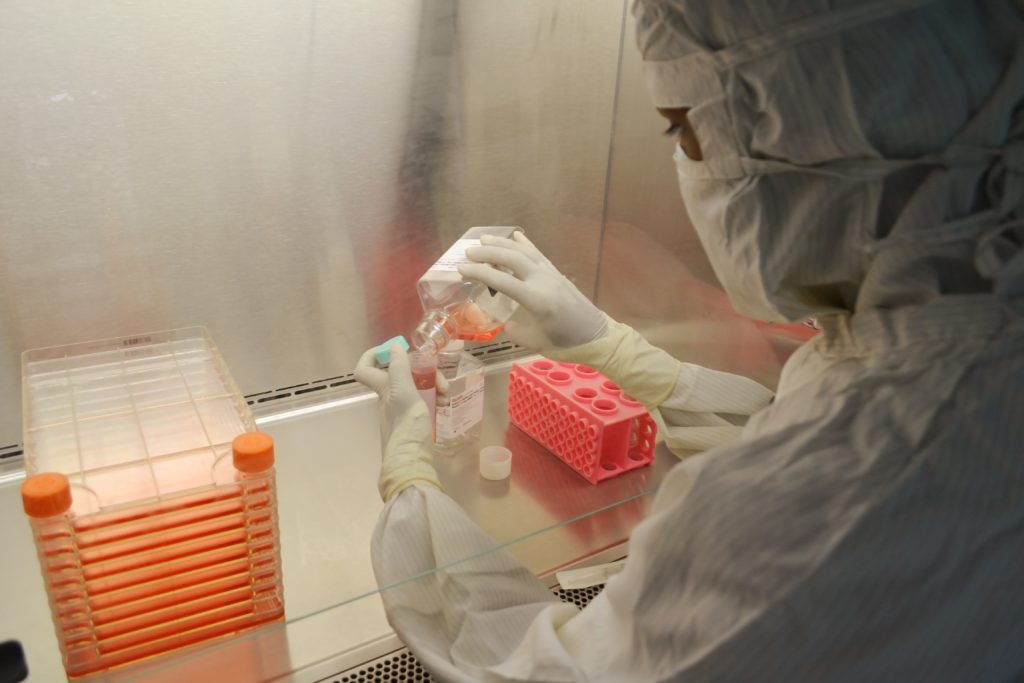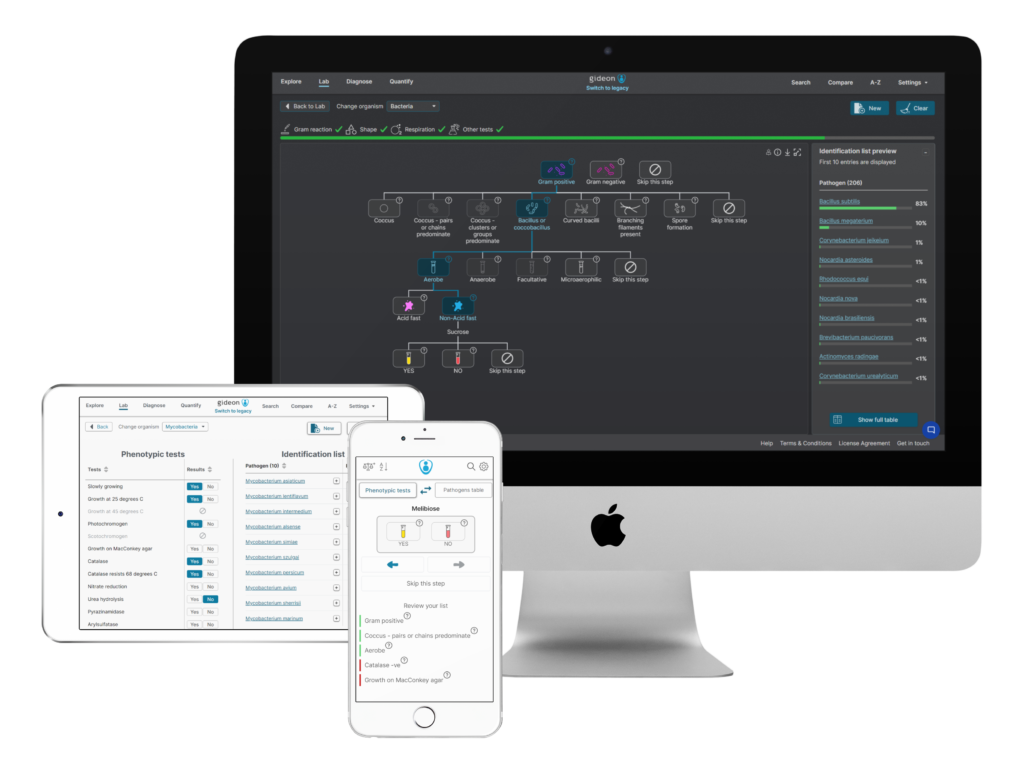Get a free book sample
Fill in your information and the book will be sent to your email in no time

Photo by Satheesh Sankaran on Unsplash
Could your patient have kissed a camel recently? A new patient may have fallen ill after indulging in a little ‘tari’ (fermented date palm sap) in Southeast Asia. Or could your hospital be in the midst of a Candida Auris outbreak – the multi-drug resistant, severe-illness causing, and often-misidentified yeast?
When you need to identify an unknown pathogen or biothreat agent, as the title song of the movie ‘Ghostbusters’ goes, “Who you gonna call?” If you’re in Maryland, Sheryl Stuckey and her clinical microbiology lab at the Holy Cross Hospital, Silver Spring, may be the help you need.
“The system has been helpful in preparing continuing education for my team. It helps us with unusual organisms and steering us toward possibilities when people have traveled or reside in other countries.”
Sheryl Stuckey, Manager, Microbiology Lab
Holy Cross Hospital, Silver Spring, Maryland, USA
Led by Sheryl Stuckey, the Microbiology lab at the Holy Cross Hospital, Silver Spring, Maryland, has to run with a high level of efficiency. It is usually abuzz with energy from handling a wide range of tasks for the hospital and external agencies. Although the hospital is a community hospital with 450+ beds, it serves patients from all over the world. Even the staff is diverse and represents over 80 countries. But that’s not all.
Sheryl faces an added layer of responsibility – she is the lab tech for clinical microbiology in her hospital, and no one else in her chain of command knows this diagnostic area. Hospitalists (physicians who specialize in treating hospitalized patients) often reach out to Sheryl for help with identifying or confirming a pathogen diagnosis.
For example, she recently helped a hospitalist identify MERS (Middle East Respiratory Syndrome, also known as ‘camel flu’). While the physician suspected something else, the microbiology lab suggested checking for the patient’s travel history. Says Sheryl, “He hadn’t thought to ask, and when he did, he learned that she had traveled to the Middle East and kissed a camel. Crazy, right?”

Image: GIDEON database MERS worldwide distribution notes. Copyright © GIDEON Informatics, Inc
The Holy Cross Hospital microbiology lab is also a certified Sentinel Clinical lab to assess suspected agents of bioterrorism, special pathogens, and emerging infectious diseases for their county [1]. The lab packages and ships potential and actual biothreat specimens to the Maryland State Laboratory for special pathogens, surveillance organisms (like COVID-19, Auris, CREs, and more). The lab offers guidance on what specimens to collect and how to collect them safely. The CDC states that Sentinel Laboratories “play a key role in the early detection of biological agents.”
The lab is also PPE buddies for their Automated Laboratory Partners for routine testing for potentially infectious pathogens and Person Under Investigation (PUI) for a special pathogen. The PPE buddy system ensures that lab members look out for each other and follow all recommended safety protocols when dealing with infectious (or potentially infectious) pathogens.
There is little room for error when dealing with infectious diseases, special pathogens, and potential biological threats. Early and accurate detection is critical to prevent or mitigate outbreaks and more widespread devastation.
“I rely on this program because it has everything I need in a pinch.”
– Sheryl Stuckey
The Holy Cross Hospital Microbiology Lab appreciates the vast resources that GIDEON offers. GIDEON – the Global Infectious Diseases and Epidemiology Online Network – is a preferred partner for microbiology labs worldwide.
About GIDEON, Sheryl states, “My favorite features are the organism identification function, information about diseases, comparison of organisms, and now the flowchart function.” She adds, “The system has been helpful in preparing continuing education for my team. It helps us with unusual organisms and steering us toward possibilities when people have traveled or reside in other countries.”
Designed together with microbiology experts, GIDEON’s lab resources can help:

Image: GIDEON microbiology lab diagnosis probability engine and unknown pathogen decision tree. Copyright © GIDEON Informatics, Inc
An added bonus for hospitals, research hospitals, and teaching institutions is that GIDEON is the most comprehensive database of historical and current infectious disease outbreaks worldwide. Healthcare professionals and researchers can save a lot of time by using the GIDEON one-stop resource for infectious disease and epidemiology research.
The GIDEON infectious disease database empowers microbiology labs, hospitals, physicians, and researchers to identify and detect pathogens early and more accurately.
The platform hosts a wide variety of tools to help busy microbiology labs compare pathogens, analyze the epidemiological impact of patients’ travel histories, use probability engines and decision trees for pathogens and unknown bacteria, mycobacteria, and yeasts.
GIDEON is one of the most well-known and comprehensive global databases for infectious diseases. Data is refreshed daily, and the GIDEON API allows medical professionals and researchers access to a continuous stream of data. Whether your research involves quantifying data, learning about specific microbes, or testing out differential diagnosis tools– GIDEON has you covered with a program that has met standards for accessibility excellence. You can also review our eBooks on Listeriosis, Miscellaneous Intestinal Diseases, Non-Venereal Treponematoses, and more. Or check out our global status updates on countries like Montserrat, Portugal, Reunion, and more!
| [1] | ASM (American Society for Microbiology), “Laboratory Response Network (LRN) Sentinel Level Clinical Laboratory Protocols,” 20 11 2013. [Online] [Accessed 2021 08 16]. |